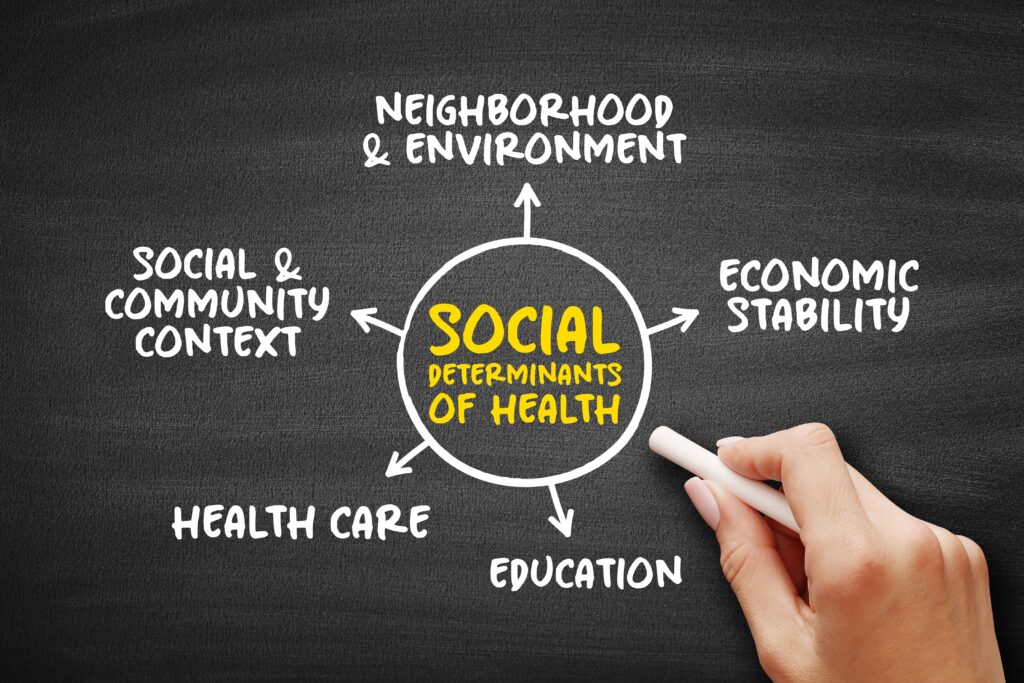SDOH decoded: Understanding how social determinants impact patient care
Technology tools are helping healthcare providers collect and analyze data related to social determinants, enabling them to understand patients’ needs and provide personalized care.

The rationale behind social determinants of health (SDOH) has been increasingly recognized in the healthcare sector. SDOH acknowledge the circumstances in the places where individuals reside, educate themselves, earn their livelihood and engage in recreational activities, all of which have a substantial impact on a broad spectrum of health results and hazards.
Factors such as housing, education, access to nutritious food and economic stability, among others, play a crucial role in shaping the health of individuals and communities. As the healthcare industry evolves, there's a growing recognition of the need to factor in these social determinants to provide comprehensive and effective care.
Tech progress with SDOH
Healthcare organizations, insurers and government agencies increasingly acknowledge the importance of SDOH. A variety of entities are taking proactive steps to address these factors, realizing that meeting individuals’ basic needs can prevent medical emergencies, reduce healthcare costs and improve patients’ quality of life. For instance, ensuring a person with diabetes has a functioning refrigerator to store insulin supplies can prevent health crises.
Many point to technology as a potent instrument in this pursuit. Advanced data analytics and machine learning algorithms are being used to identify SDOH needs, enabling healthcare providers to tailor their services to the unique circumstances of their patients.
From electronic health records (EHRs) to mobile health apps, technology is playing a pivotal role in addressing SDOH concerns. These tools are helping healthcare providers collect and analyze data related to social determinants, enabling them to understand their patients’ needs better and provide personalized care. For instance, EHRs can be used to track a patient's housing situation, dietary habits and access to transportation, providing valuable insights that can inform care decisions.
Despite the promise of technology, integrating SDOH data into healthcare systems is challenging. Data privacy concerns, interoperability issues and the lack of standardized metrics for SDOH are some hurdles that need to be overcome.
However, the healthcare industry is making progress in addressing these challenges. For instance, new data integration platforms are being developed that enable secure and seamless sharing of SDOH data across different healthcare systems. These platforms are helping to break down data silos and facilitate coordinated care.
Changing processes to aid access
In addition to leveraging technology, healthcare organizations are also changing their processes to improve access to care. Telemedicine, for instance, is being used to reach patients in remote areas, overcoming geographical barriers to care.
Similarly, community partnerships are being forged to address SDOH locally. For instance, healthcare providers are partnering with food banks and housing agencies to meet patients' basic needs.
Innovation is at the heart of the healthcare industry's efforts to address SDOH. From predictive analytics tools that identify patients at risk of poor health outcomes because of SDOH to mobile apps that connect patients with community resources, various innovative solutions are being deployed to meet SDOH needs.
Learnings from the pandemic
The COVID-19 pandemic has emphasized the critical need to tackle SDOH. The crisis has highlighted the stark health disparities in our society, with marginalized communities disproportionately affected by the virus.
The pandemic has further highlighted the necessity for a comprehensive health strategy that not only treats illnesses but also addresses the social determinants that impact health. As we move forward, these learnings will be crucial in shaping the future of healthcare.
Addressing social determinants of health is no longer optional for the healthcare industry; it's a necessity. As we move forward, integrating SDOH into healthcare practices will be crucial in delivering comprehensive, personalized and effective care. The use of technology, innovative approaches and learnings from the pandemic are all guiding the way toward a more holistic and inclusive healthcare system.
The journey is not without challenges, but recent progress is promising. As medical institutions, insurance providers and governmental bodies persist in enlightening the public and tackling SDOH, we can anticipate a future where a person’s socioeconomic conditions do not dictate the state of their health.
The healthcare industry's commitment must include recognizing and responding to the societal elements that impact health, thus improving the odds that everyone, irrespective of their situation, has the chance to pursue a life of good health and fulfillment.
Health is not merely about being disease-free; it's about achieving a state of comprehensive well-being – physically, mentally and socially. This all-encompassing perspective of health underscores the significance of every facet of our existence in shaping our overall health. Incorporating SDOH into our approach is a crucial step towards making this comprehensive vision of health a reality. This is the future of healthcare – a future where every individual can achieve their fullest health potential.
Kenneth R. Deans, Jr., DHA is president and CEO of Health Sciences South Carolina.